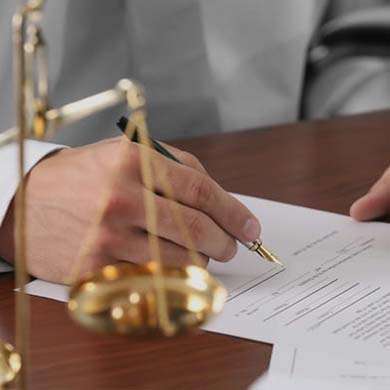Clients Reviews

4.9 / 5 based on 237 user ratings.
Clients Reviews

4.9 / 5 based on 237 user ratings.
We help you to
Does Someone Owe You Money? Recover Monies Owed!
We Research, Prepare, File Your Case in Small Claims Court Pennsylvania.
Small claims court in Pennsylvania is a special court that handles disputes involving small amounts of money. In Pennsylvania, small claims court is also known as the Magisterial District Court.
The Pennsylvania small claims court has jurisdiction over cases where the amount in dispute is $12,000 or less. The types of cases that are typically heard in small claims court include disputes between landlords and tenants, disputes over unpaid bills or debts, and disputes over damages to property.
In small claims court, the plaintiff (the person bringing the case) must file a complaint with the court and pay a filing fee. The defendant (the person being sued) is then served with a summons and must appear in court on the specified date to defend themselves.
The small claims court process is designed to be simple and efficient, and parties are often not allowed to have attorneys represent them in court. Instead, they must present their own evidence and argue their case themselves.
Overall, small claims court in Pennsylvania provides an accessible and affordable way for individuals to resolve disputes without the need for costly and time-consuming litigation.

To file a small claim in Pennsylvania, you must follow these steps:
It's important to note that small claims court procedures and requirements can vary from county to county, so it's best to check with your local court for specific instructions and guidelines.


If you need to sue someone in Pennsylvania, or if you are being sued, you will need to follow these general steps:
It is highly recommended that you seek the advice of an attorney if you are considering suing someone or if you have been sued. An attorney can help you navigate the legal process and ensure that your rights are protected.
In Pennsylvania, any individual who is at least 18 years old or an emancipated minor can file or defend a small claim. A business entity can also file or defend a small claim in Pennsylvania, but must be represented by an authorized agent or attorney.
It's important to note that Pennsylvania small claims court is designed to be accessible and affordable, and parties are often not allowed to have attorneys represent them in court. Instead, they must present their own evidence and argue their case themselves.
However, if you are not comfortable representing yourself in court, or if your case is particularly complex, you may want to consider hiring an attorney to represent you. An attorney can help you navigate the legal process and ensure that your rights are protected.
Additionally, if you are filing a small claim on behalf of a minor, you will need to obtain permission from the court before proceeding. The court may require that a guardian ad litem be appointed to represent the interests of the minor in the case.
In Pennsylvania, small claims cases are filed in the Magisterial District Court in the county where the defendant lives or where the dispute arose. You can find the Magisterial District Court for your county by visiting the Pennsylvania Unified Judicial System website and using the "Find a Court" tool.
When you file a small claim, you will need to provide the court with the appropriate forms and pay a filing fee. The forms you will need to fill out include a Statement of Claim and a Civil Cover Sheet. You can obtain these forms from the Magisterial District Court or download them from the Pennsylvania Courts website.
It's important to note that small claims court procedures and requirements can vary from county to county, so it's best to check with your local court for specific instructions and guidelines. Additionally, if you are unsure about the process or if your case is particularly complex, you may want to consider seeking the advice of an attorney.
In Pennsylvania, a Statement of Claim is a document that is used to initiate a small claims case in the Magisterial District Court. The Statement of Claim sets forth the factual basis for the plaintiff's claim, and the relief that the plaintiff is seeking.
The Statement of Claim typically includes the following information:
The Statement of Claim must be signed by the plaintiff and filed with the Magisterial District Court in the county where the defendant lives or where the dispute arose. The court will then serve a copy of the Statement of Claim and a Notice to Defend on the defendant, and schedule a hearing date for the case.
It's important to note that the Statement of Claim should be as clear and concise as possible, and should focus on the relevant facts that support the plaintiff's claim. If the Statement of Claim is unclear or incomplete, the plaintiff may have difficulty proving their case in court.
If you have filed a small claim in Pennsylvania and are preparing for trial, here are some steps you can take:
It's important to remember that small claims court is designed to be accessible and straightforward, and the judge will typically try to help both parties reach a fair resolution. By being well-prepared and organized, you can increase your chances of success in your small claims case.
If a settlement is reached before the scheduled small claims trial in Pennsylvania, both parties should take the following steps:
It's important to note that if the settlement is reached after the trial has begun, the parties should inform the judge and seek the judge's approval of the settlement agreement. If the judge approves the settlement, the case will be dismissed and the parties will be bound by the terms of the settlement agreement.
If you are dissatisfied with the outcome of a small claims case in Pennsylvania, you have the right to appeal the judgment. Here are the steps to take to appeal a small claims judgment:
It's important to note that the appeals process can be complex, and it may be helpful to consult with an attorney who has experience with small claims appeals in Pennsylvania. An attorney can review your case, help you prepare your argument and evidence, and represent you at the appeal hearing.
No, you do not have to have a lawyer to sue in small claims court in Pennsylvania. In fact, small claims court is designed to be accessible and easy for individuals to use without the need for an attorney. Small claims court proceedings are less formal than other types of court proceedings, and the rules of evidence are relaxed.
However, while you are not required to have a lawyer, you may still choose to hire one if you believe it will improve your chances of success. An attorney can provide valuable advice on your case, help you prepare your evidence, and represent you in court if you are not comfortable doing so on your own.
It's important to note that if you do decide to represent yourself in small claims court, you should be prepared to do the following:
Overall, while you do not need a lawyer to sue in small claims court in Pennsylvania, it may still be helpful to seek legal advice if you are unsure about the legal process or if your case is complex.
Thanks Small Claim Filing. I extremely suggest Small Claims Filing affordable paper preparation solutions for any person who desires quick efficient as well as economical solutions. They do the job and assisted me with my separation as well as my little girl custodianship. Now my divorce is done in 4 months and also I have my child full protection, by the help of God as well as Small Claim Filing.
Small Claim Filing was advised to me by a buddy. I rejoice I took my friend's guidance. I maintained Small Claim Filing and they right away took control of the case. He and his staff maintained me updated, calm, as well as less-stressed offered the situations of the scenario. I trusted Small Claim Filing would steer me in the appropriate direction, as well as I was not wrong. I am much happier with how the case turned out and would suggest them to any person seeking Court.